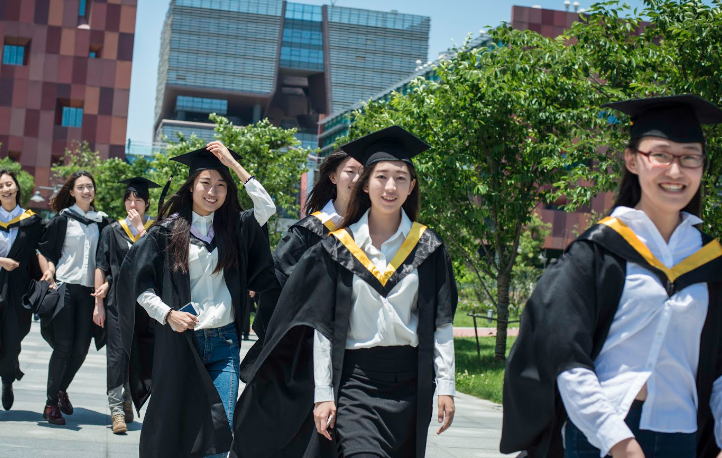Yes, Chinese students can apply to universities in China, following specific eligibility and application processes.
Table of Contents
Eligibility Criteria for Chinese Students
Academic Requirements
Chinese students aiming to apply for universities within China must meet specific academic standards. These standards typically include a high school diploma or its equivalent, reflecting a strong academic background. Students are expected to have achieved a minimum grade point average (GPA), although this requirement varies by university. For instance, top-tier institutions like Tsinghua University or Peking University might require higher GPAs compared to regional colleges.
In addition to the GPA, students must pass the National Higher Education Entrance Examination, commonly known as the Gaokao. This rigorous test covers a range of subjects including Chinese, Mathematics, and English, with optional sections in Science or Humanities. The Gaokao score significantly influences university admissions, with higher scores opening doors to more prestigious universities.

Language Proficiency Standards
Language proficiency is a critical requirement for Chinese students, especially for programs taught in Mandarin Chinese. Universities expect applicants to have a strong command of the language, both in written and spoken forms. For programs offered in English, students might need to demonstrate proficiency through tests like TOEFL or IELTS.
The Hanyu Shuiping Kaoshi (HSK) is a standard test for Mandarin proficiency. Different programs may require different HSK levels, typically ranging from Level 4 to Level 6 for university admissions. These tests assess students’ abilities in listening, speaking, reading, and writing in Mandarin.
Residence Status Considerations
Residence status plays a role in the eligibility of Chinese students for university admissions. Students from different provinces in China might face varying admission standards due to the regional quota system in place. This system allocates a certain number of university spots for students from each province, often making it more competitive for students from densely populated regions.
Application Process for Chinese Universities
Document Preparation and Submission
The first step for Chinese students applying to universities involves preparing and submitting various documents. These documents usually include the high school transcript, Gaokao score report, personal statement, letters of recommendation, and proof of language proficiency (HSK scores for Mandarin or TOEFL/IELTS scores for English).
Applicants must ensure that their transcripts and score reports are officially certified and translated if not in Mandarin. The personal statement, a key component of the application, should highlight the student’s academic achievements, extracurricular activities, and reasons for choosing their preferred course and university. Letters of recommendation, preferably from teachers or school officials, should attest to the student’s academic abilities and character.
All these documents need to be compiled and submitted before the application deadline, which varies by university and program. Many universities in China now accept online submissions through their dedicated portals, making it easier for students to apply.
Entrance Examinations
In addition to the Gaokao, some universities and specific programs may require additional entrance examinations. These exams are designed to assess the student’s knowledge and suitability for the chosen field of study. For example, art and music programs often require practical performance tests, while science and engineering programs might have specific subject tests.
These entrance exams are typically held on university campuses and may require additional registration procedures. Students should carefully check the exam schedule and requirements well in advance to ensure they are adequately prepared.
Interview Procedures
The interview process is an integral part of the application for many Chinese universities, especially for competitive programs. Interviews are conducted to evaluate the student’s communication skills, motivation, and overall fit for the program.
Types of Programs Available to Chinese Students
Undergraduate Programs
Chinese universities offer a wide range of undergraduate programs spanning various fields such as Science, Engineering, Humanities, Arts, and Business. These programs typically last for four years, except for certain specialized courses like Medicine, which may extend up to five or six years.
- Key Features of Undergraduate Programs:
- Duration: 4 years (5-6 years for programs like Medicine)
- Major Fields: Engineering, Computer Science, Business, Medicine, Humanities, etc.
- Language of Instruction: Mainly Mandarin, with some programs offered in English
- Cost: Tuition fees range from CNY 15,000 to CNY 40,000 per year, depending on the university and program.
Students have the option to choose from renowned universities like Tsinghua University and Fudan University, which are known for their rigorous academic standards and state-of-the-art research facilities.
Postgraduate and Doctoral Programs
For students seeking advanced studies, Chinese universities provide a variety of postgraduate (Master’s) and doctoral (Ph.D.) programs. These programs are research-intensive and often require the completion of a thesis or dissertation.
- Characteristics of Postgraduate and Doctoral Programs:
- Duration: 2-3 years for Master’s; 3-6 years for Ph.D.
- Areas of Study: Wide-ranging, including specialized fields like Robotics, Environmental Science, and International Relations
- Admission Requirements: Bachelor’s degree for Master’s programs; Master’s degree for Ph.D. programs
- Language Requirements: Higher proficiency in Mandarin or English, depending on the program.
Institutions like Peking University are particularly noted for their postgraduate programs, attracting students and researchers from across the globe.
Vocational and Technical Courses
Vocational and technical education in China is designed to provide practical skills and training for specific trades or professions. These courses are ideal for students looking to enter the workforce directly after completion.
- Features of Vocational and Technical Courses:
- Duration: Typically 1-3 years
- Focus Areas: Applied Sciences, Information Technology, Business Administration, and more
- Practical Training: Emphasis on hands-on experience and industry placements
- Cost: Generally lower than traditional academic programs, with an average range of CNY 5,000 to CNY 20,000 per year.

Financial Considerations and Scholarships
Tuition Fees and Living Expenses
Studying in Chinese universities involves various financial considerations, primarily tuition fees and living expenses. The cost can vary significantly depending on the university, program, and city.
- Tuition Fees:
- For undergraduate programs, fees range from approximately CNY 15,000 to CNY 40,000 per year.
- Postgraduate programs might cost between CNY 20,000 to CNY 50,000 annually.
- Vocational and technical courses usually have lower fees, around CNY 5,000 to CNY 20,000 per year.
- Living Expenses:
- In major cities like Beijing or Shanghai, living costs can be about CNY 2,500 to CNY 4,500 per month.
- In smaller cities or towns, expenses might drop to CNY 1,500 to CNY 2,500 monthly.
- These estimates include accommodation, food, transportation, and personal expenses.
Scholarship Opportunities
Chinese universities and the government offer numerous scholarships to both domestic and international students. These scholarships can significantly reduce the financial burden of higher education.
- Chinese Government Scholarships:
- Cover tuition, accommodation, a stipend, and medical insurance.
- Notable ones include the China Scholarship Council (CSC) Scholarship.
- University Scholarships:
- Offered by individual universities for outstanding academic or extracurricular achievements.
- May cover partial or full tuition, and sometimes include living stipends.
- External Scholarships:
- Provided by private organizations, companies, or international foundations.
- Criteria and benefits vary widely.
Students should research and apply for these scholarships well in advance of the academic year.
Financial Aid for Domestic Students
Financial aid is available for Chinese students who face economic hardships. These aids are designed to ensure that financial constraints do not hinder talented students from pursuing higher education.
- Types of Financial Aid:
- Need-Based Scholarships: Awarded based on family income and financial need.
- Student Loans: Government-backed loans with low-interest rates and deferred repayment options.
- Work-Study Programs: Opportunities to work part-time on campus to earn money while studying.
University Selection and Ranking
Top Ranked Universities in China
| Rank | University Name | Location | Noted Programs | QS World Ranking |
|---|---|---|---|---|
| 1 | Tsinghua University | Beijing | Engineering, Computer Science | 15 |
| 2 | Peking University | Beijing | Humanities, Sciences | 23 |
| 3 | Fudan University | Shanghai | Business, Medicine | 34 |
| 4 | Shanghai Jiao Tong University | Shanghai | Engineering, Business | 47 |
| 5 | Zhejiang University | Hangzhou | Engineering, Arts | 54 |
| 6 | University of Science and Technology of China | Hefei | Natural Sciences, Technology | 85 |
| 7 | Nanjing University | Nanjing | History, Chemistry | 91 |
| 8 | Sun Yat-sen University | Guangzhou | Medical Sciences, Engineering | 103 |
| 9 | Wuhan University | Wuhan | Law, Water Engineering | 257 |
| 10 | Harbin Institute of Technology | Harbin | Aerospace Engineering, Robotics | 260 |
Factors to Consider While Choosing a University
When selecting a university, students should consider various factors to ensure that the institution aligns with their academic and career goals.
- Academic Reputation: Research the university’s standing in your field of interest.
- Program Offerings: Ensure the university offers the specific program you are interested in.
- Location and Campus Life: Consider the city’s lifestyle, culture, and climate.
- Faculty and Resources: Look into the faculty’s expertise and available research facilities.
- Alumni Network: A strong alumni network can provide career and networking opportunities.
These factors play a crucial role in shaping your academic experience and future career prospects.
Regional and Specialized Institutions
Apart from the top-ranked universities, China boasts numerous regional and specialized institutions that offer quality education in specific fields.
- Regional Universities: Such as Lanzhou University and Northeastern University, known for their strong regional influence and specialized programs.
- Specialized Institutions: Like China Academy of Art for fine arts and Beijing Film Academy for film studies.

Support Services for Students
Campus Facilities and Resources
Chinese universities invest substantially in campus facilities and resources to enhance the academic experience. State-of-the-art laboratories and research centers are common in fields like engineering, biotechnology, and computer science, providing students with the opportunity to engage in cutting-edge research. Libraries are another key resource, with extensive collections and digital databases. For example, the library at Tsinghua University boasts over 5 million volumes, encompassing a wide range of subjects.
Housing and Accommodation
Accommodation options vary from on-campus dormitories to off-campus apartments. On-campus housing is typically more affordable, with costs ranging from CNY 1,200 to CNY 2,500 per month, depending on the city and university. These dormitories offer basic amenities like internet access, communal laundry facilities, and sometimes meal services. For students preferring more independence, off-campus apartments provide more space and privacy but at a higher cost, averaging CNY 2,500 to CNY 4,500 per month in major cities.
Student Life and Extracurricular Activities
Chinese universities foster vibrant student communities with a wide range of extracurricular activities. Sports facilities, including gyms, swimming pools, and sports fields, are widely available for health and fitness enthusiasts. Cultural clubs and societies provide platforms for artistic expression and cultural exchange. For instance, Peking University hosts various student organizations, from debate clubs to music and theater groups, enriching the campus life experience.

